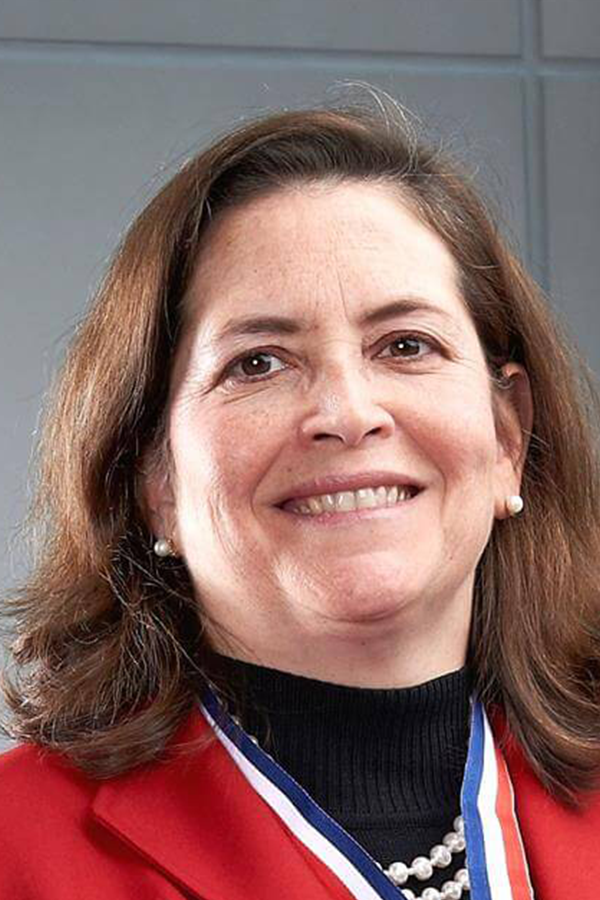
Prof. Donna McDonald-McGinn is Director of the 22q and You Center, Chief of the Section of Genetic Counseling, and Associate Director of the Clinical Genetics Center at the Children's Hospital of Philadelphia and Clinical Professor of Pediatrics at the Perelman School of Medicine of the University of Pennsylvania.
Prof. McDonald-McGinn was born and raised in Philadelphia. She obtained her Bachelor of Arts Degrees in Biology and Sociology from Rosemont College, in Rosemont, PA and Master of Science in Human Genetics from Sarah Lawrence College, in Bronxville, NY. She arrived at the Children's Hospital of Philadelphia as a Genetic Counseling student in 1983 hoping to shadow renowned dysmorphologist Elaine Zackai, MD, and never left - officially joining the Division of Human Genetics in 1985. She began working on the chromosome 22q11.2 deletion syndrome following the development of a 22q11.2 specific FISH probe in the laboratory of Beverly Emanuel, PhD, in 1992. Shortly thereafter, she founded the 22q and You Center, a pioneering holistic care program for individuals and families affected by chromosome 22q11.2 differences, a program that remains to this day a trailblazer in the field.
Prof. McDonald-McGinn has spent much of her professional career striving to support education, multidisciplinary care, and collaborative outcomes research involving the relationship of 22q11.2 deletion syndrome with associated birth defects, medical problems, cognitive deficits, and behavioral health. Within this area, she has published more than 300 manuscripts, chapters and reviews and led global cooperative initiatives including establishing chromosome 22q11.2 deletion syndrome specific pediatric and adult clinical practice guidelines. She is a regularly invited lecturer at national and international scientific and family meetings and academic institutes, as well as a much sought after webinar presenter. She is a perennial thesis advisor, teacher, and student mentor, endeavoring to inspire the next generation of chromosome 22q11.2 experts. She acts as principle investigator for several United States National Institute of Health research studies and privately funded programs.
Prof. McDonald-McGinn's initiation into the international 22q11.2 community began when serving as the invited keynote speaker at the 1st International 22q11.2 Conference in Strasbourg, France in 1998, solidifying her now career-long commitment to the patients she serves and her new found colleagues and friends. In 2012, she received the Angelo DiGeorge Memorial Medal of Honor, an international award recognizing her contributions to the "global understanding of the 22q11.2 deletion syndrome."
Prof. McDonald-McGinn led the establishment of the 22q11.2 Society, established in 2013, as a Founding Member, Trustee, and Secretary. She was named Chair of the 22q11.2 Society in 2019, affording her the opportunity to strengthen her close national and international ties with healthcare providers, junior investigators, and basic scientists across numerous disciplines. In 2018, she and her 22q and You Center team at the Children's Hospital of Philadelphia received the 22q11.2 Society's Inaugural Special Service Award for their "outstanding, longstanding, exemplary and unwavering commitment and contributions to the chromosome 22q11.2 community." During her career, she has served/is currently serving as a member of the International 22q11.2 Modifier Gene Consortium, Program Lead for the International 22q11.2 Biennial Conferences, and Principle Investigator for the International 22q11.2 Brain and Behavior Consortium (IBBC) and Genes to Mental Health Network (G2MH).
As a current and Founding Board Member of the family support organization, the International 22q11.2 Foundation, established in 2003, Prof. McDonald-McGinn remains a tireless advocate for family support, spearheading the annual advocacy event, 22q at the Zoo - Worldwide Awareness Day, held in more than 125 locations globally, as well as, various additional rhyming events including 22q and Boo, 22k for 22q and 2.2 for 22q.
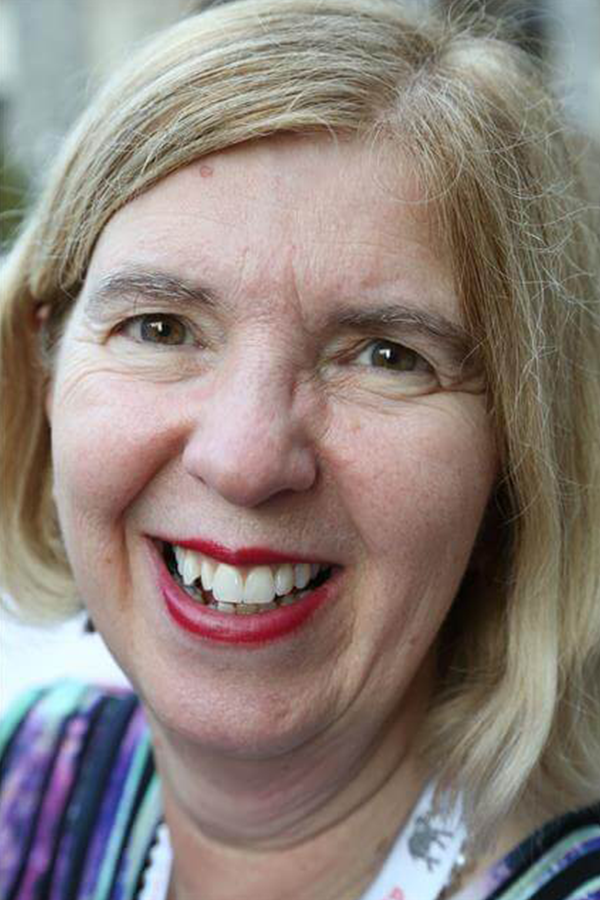
Anne Bassett (CM, MD, FRCPC) holds the Dalglish Family Chair in 22q11.2 Deletion Syndrome (22q11.2DS) and is the Director of the Dalglish Family 22q Clinic for the Toronto General Hospital, University Health Network, Toronto, Ontario, Canada. This is the first comprehensive, multidisciplinary clinic of its kind worldwide fully dedicated to the care of adults with 22q11.2DS and their families.
Dr. Bassett is a Professor in the Department of Psychiatry at the University of Toronto and Director of the Clinical Genetics Research Program at the Centre for Addiction and Mental Health (CAMH). She holds the Canada Research Chair in Schizophrenia Genetics and Genomic Disorders, and is a Senior Scientist at the Toronto General Research Institute. She is also an Associate Member of the Canadian College of Medical Geneticists, and is an Associate Staff member of both the Division of Cardiology in the Department of Medicine and the Department of Psychiatry at University Health Network in Toronto. Dr. Bassett is also the Medical Director of the International 22q11.2 Foundation.
Areas of research
Dr. Bassett is an internationally renowned expert in the study of 22q11.2 Deletion Syndrome. An exciting aspect of this research involves the direct translation of research findings into clinical practice. She led an international panel that developed the first clinical practice guidelines for 22q11.2 Deletion Syndrome, published in the Journal of Pediatrics in 2011. Her studies of the expression in adults have improved the ability of clinicians to make the diagnosis of 22q11.2 Deletion Syndrome. Dr. Bassett's pioneering research has also included many other notable 'firsts' in the field of 22q11.2 Deletion Syndrome research, in basic science and clinical arenas: delineating genome-wide copy number variation, reproductive fitness, neuropathology and longevity in 22q11.2 Deletion Syndrome, addressing adult-related genetic counselling issues, outlining the functioning of adults with the syndrome and surveying both adult patients and their caregivers about service availability and burden of illness.
In addition, Dr. Bassett is the principal investigator of studies aiming to discover the underlying genetic causes of complex diseases, such as schizophrenia and congenital cardiac disease. These diseases are prevalent in the general population and play a major role in 22q11.2 Deletion Syndrome. Her work has helped to localize multiple genes and genetic variants for these conditions, and to characterize new genetic subtypes of illness. The ultimate goal of Dr. Bassett's research program is to use these discoveries to gain new insights into the mechanism of illness that promise to help in the development of new treatments.
Dr. Bassett is the author of more than 150 peer-reviewed articles, papers, and book chapters, and has had consistent funding from major national and international agencies, including the Canadian Institutes of Health Research (CIHR) and the National Institute of Mental Health, for her research. Her students and trainees have enjoyed great success, including awards such as the Vanier Canada Graduate Scholarship (Canada's equivalent to the Rhodes Scholarship) and Brain Canada Training Award. Dr. Bassett's active career also includes substantial public service, particularly for the Schizophrenia Society of Canada and The International 22q11.2 Deletion Syndrome Foundation.
Of her many awards and honours, Dr. Bassett received the J.M. Cleghorn Award for clinical research excellence from the Canadian Psychiatric Association in 2011, has a Distinguished Fellowship from the American Psychiatric Association and was elected as a Member of the American College of Psychiatrists.
Dr. Bassett received the Angelo DiGeorge Medal in 2014 and the Lieber Prize For Outstanding Achievement In Schizophrenia Research in 2020. She was named to the Order of Canada in 2023.
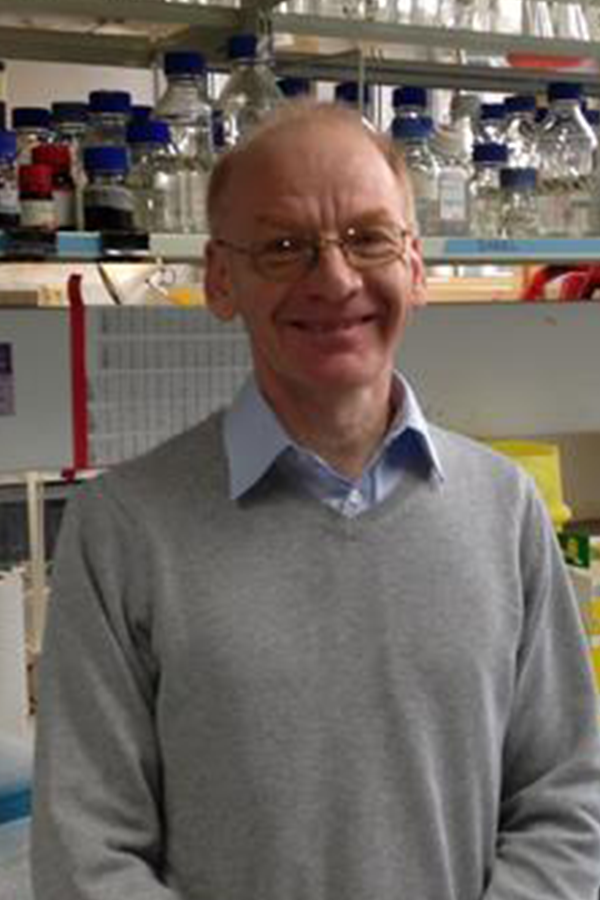
Professor Peter Scambler qualified in Medicine at the University of Manchester, UK, in 1982.
Following internship he moved to St. Mary's Hospital Medical School, London to join Prof. Bob Williamson's team on the cystic fibrosis genetics project where he stayed until the end of 1992. While failing to identify CFTR ahead of the North Americans, he developed an interest in congenital malformation syndromes, and began work on DiGeorge syndrome (now 22q11.2 deletion Syndrome) while still at St. Mary's.
In 1993 his team moved to the Institute of Child Health-UCL, Gt. Ormond St. Hospital for Sick Children (GOSH), London and formed the 'Molecular Medicine Unit'. He became Professor of Molecular Medicine in 1995, theme leader for 'Genes, Development and Disease' in 1998 and deputy director of the Institute 2003-2013.
He was elected to the Academy of Medical Sciences in 2001. The Unit's work has expanded to study the genetic and developmental basis of several human birth defects and published output may be accessed at UCL's Institutional Research Information Service.
Most recently, efforts have concentrated upon congenital cardiovascular defects seen in 22q11.2 deletion and CHARGE syndromes, with collaborations investigating other organ systems.
He was awarded the Angelo DiGeorge Medal in 2010.
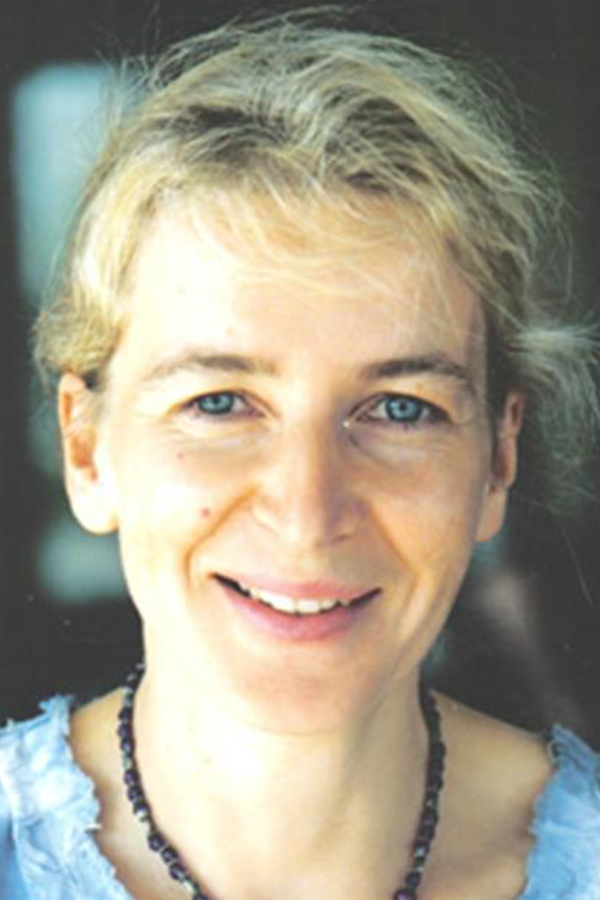
In 2001, I defended successfully my PhD research on the behavioural phenotype in 22q11.2 deletion syndrome: from infancy to adolescence. As Professor of Educational Psychology, I have dedicated my research and clinical career to understand the neuromotor, cognitive-behavioural and psychosocial aspects and outcomes in children, adolescents and adults with 22q11.2DS, as well as, genetic and environmental influences.
Since 1994, I have contributed to the establishment of a multidisciplinary 22q11.2DS clinic in Leuven and to the Belgian 22q11.2DS parent association, leading to important ties within the lay community in Belgium and throughout the region. I have been actively involved for many years in the provision of coordinated multidisciplinary care for patients with 22q11.2DS and their families in Belgium and in Europe.
Editor's note: Professor Swillen received the Angelo DiGeorge Medal in 2016 and the Edelweiss Award in 2020.Professor Swillen and the Edelweiss Award
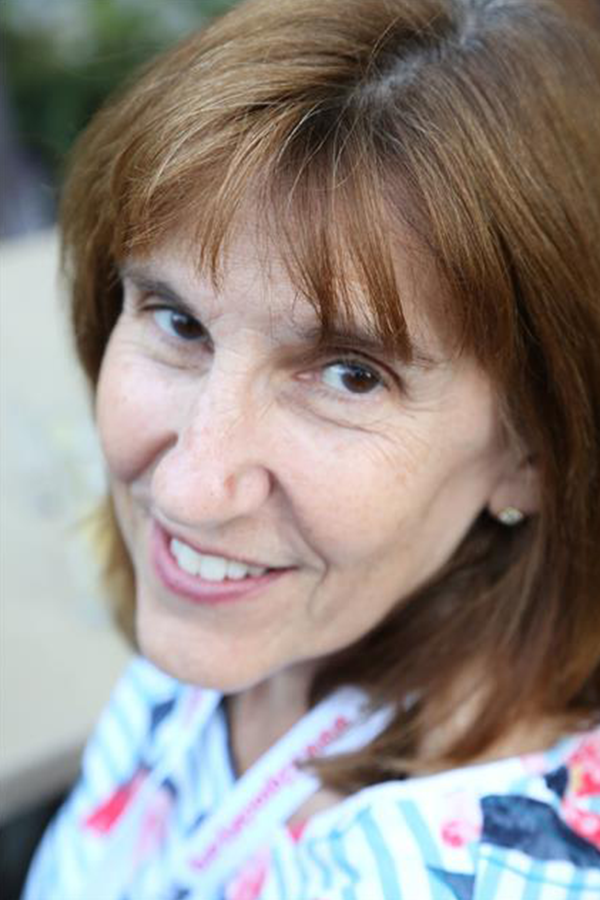
Bernice E. Morrow, Ph.D., is a professor in the Departments of Genetics, Obstetrics & Gynecology and Women's Health, and Pediatrics at the Albert Einstein College of Medicine in New York. She is also the Sidney L. and Miriam K. Olson Chair in Cardiology as well as the Director of the Division of Translational Genetics at the Department of Genetics at Einstein.
Bernice's lab has collected over 2,000 DNA samples from individuals with the 22q11.2 deletion syndrome (22q11.2DS) and some of their normal parents. The team have performed microarray and whole exome sequencing to identify genetic modifiers of the phenotype. A systems biology computational approach is being undertaken to integrate genotypes, known biological function of genes, exome sequence and copy number variation data to identify key genetic pathways downstream of the 22q11.2 deletion.
In order to determine function of genes identified from the human genetics projects, Bernice and her team are using the mouse as a model. Two key genes, Tbx1 and Crkl are being analyzed in mice to understand the molecular pathogenesis of cardiac, craniofacial and inner ear defects in mouse models of the disorder. They will cross mice with mutations of these genes and genes identified from the human genetics projects to identify genetic interactions.
Editor's note: Prof. Morrow received the Angelo DiGeorge Medal in 2018.

Beata Nowakowska is Associate Professor and Head of the Laboratory of Cytogenetics at the Department of Medical Genetics at the Institute of Mother and Child in Warsaw. In 2009 she obtained her PhD degree in Medical Genetics at the Warsaw Medical University. She gained the experience in the field of genetics at the Universities of Toronto, Rockefeller in New York, Baylor College of Medicine in Houston (where she performed part of the doctoral thesis) and KU Leuven in Belgium (as a postdoc). Her research focus is on studying the basic mechanisms underlying genomic disease, with particular interest in role of copy number variation in common diseases such as intellectual disability or autism. Since 2010, her research is focused on the phenotypic variability of patients with 22q11 Deletion Syndrome.
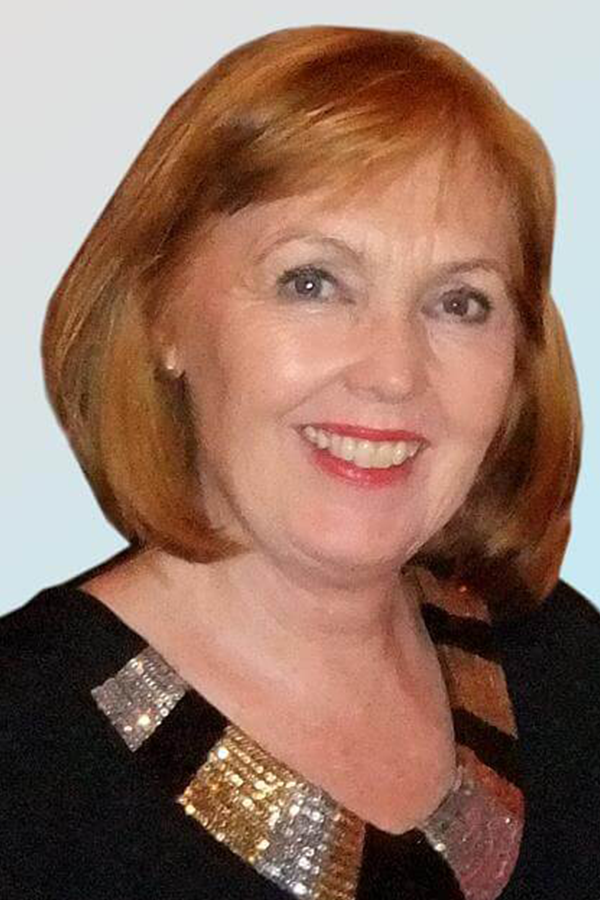
Dr. Sólveig Óskarsdóttir graduated in Medicine at the University of Iceland in 1980. She moved to Gothenburg, Sweden 1984 and has been working at Queen Silvia Children's Hospital/Sahlgrenska University Hospital since then. She became a specialist in pediatrics 1990.
Dr. Óskarsdóttir became part of the Rheumatology and Immunology team in the early 1990s. In her clinical work she became engaged in patients with 22q11 deletion syndrome, which was a new and emerging group at that time. In 1997, she set up a multidisciplinary specialist-team to evaluate the different aspects of the disorder systematically. This was the starting point for a research project, and she successfully defended her PhD thesis, "The 22q11 deletion syndrome. A Clinical and Epidemiological Study", in 2005. The project resulted in several additional publications and two other PhD theses.
Another aim of Dr. Óskarsdóttir's project was to disseminate information and increase knowledge about the syndrome among professionals and families. She contributed to the establishment of a family and patient organisation in 2000 and became a member of its board. She continues to be highly involved in education and distribution activities organised by the association.
Dr. Óskarsdóttir has been following children and adolescents with the 22q11 deletion syndrome for nearly 30 years and is the leader of the 22q11-expert team at Sahlgrenska University Hospital in Gothenburg, Sweden.
Dr. Óskarsdóttir is a founding member of the 22q Society. Together with international colleagues, she participated in providing guidelines for management and follow-up of children with 22q11.2DS. Together with a group of professionals and parents, she is now developing national guidelines for Sweden.
Although Dr. Óskarsdóttir is officially retired, she still works part time, mostly on 22q11 deletion syndrome. She is currently involved in a research project which focusses on thymic function in patients with the syndrome. She also participates in an international multidisciplinary study together with many centres around the world.

Dr. Erik Boot is a physician specialized in intellectual disability medicine and works at the multidisciplinary 22q11.2 clinics for adults at 's Heeren Loo in the Netherlands. He obtained his MD at the University of Amsterdam in 1999, completed his medical specialty training at the Erasmus University in Rotterdam in 2004, and completed his PhD thesis on adults with 22q11.2 deletion syndrome at the University of Amsterdam in 2010. From 2014 to 2016, he trained as a post-doctoral fellow in the Department of Psychiatry at the University of Toronto, Canada. This was a clinical and research fellowship program at The Dalglish Family 22q Clinic; an interdisciplinary clinic devoted to adults with 22q11.2 deletion syndrome and their families. An important part of his research aims at increasing the knowledge about manifestations related to the chromosome 22q11.2 region and improving the quality of life for adults affected with 22q11.2 syndrome. He is also a member of the scientific advisory committee of the Dutch 22q11.2 family network (Stichting Steun 22Q11).
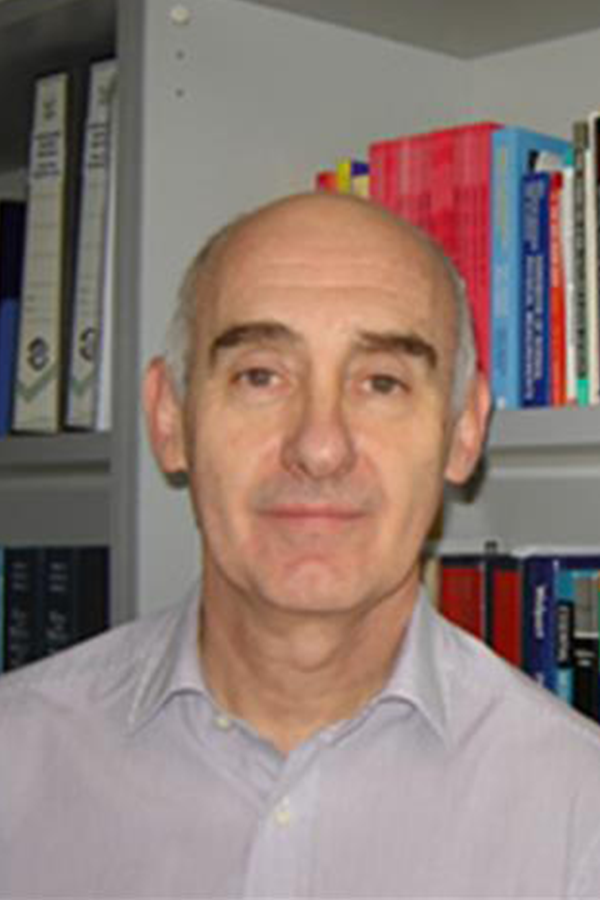
Born in Bilbao, Spain, 1956. Set out to become a Community Paediatrician, training in Paediatrics (Bilbao, Spain, 1982-1986) and Public Health (John Hopkins University, Baltimore, US, 1986-1987).
Became involved in the setting up and running of the Basque Country EUROCAT register of congenital anomalies for ten years (1990-2000), which eventually led him astray into genetics.
Trained in Clinical Genetics (Edinburgh, UK, 2000-2004). Worked as a Consultant in London (2004-2006) and Barcelona (2007-2008). Currently in charge of the Clinical Genetics Section of the Institute of Medical and Molecular Genetics (INGEMM) at University Hospital La Paz in Madrid.
He has a long-standing interest in 22q11.2 deletion syndrome and has been actively involved in the last few years in the provision of multidisciplinary care for patients with 22q11.2 deletion syndrome and their families.
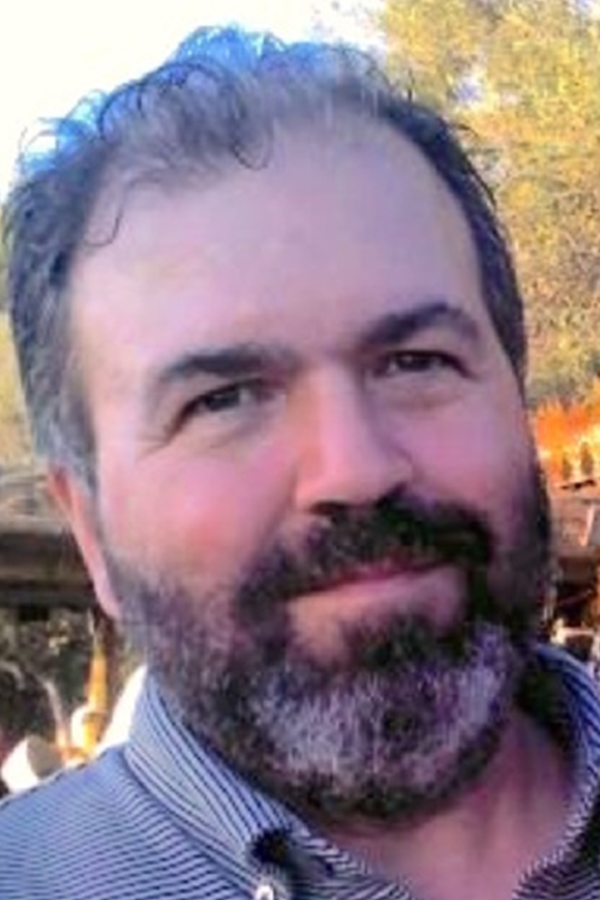
Damian Heine Suñer (PhD) was born in 1963 in New York City, USA. He followed his studies in biology at the University of Barcelona, Spain. He received a joint PhD degree from Rutgers University and the University of Medicine and Dentistry of New Jersey (UMDNJ), USA, in 1995. The research leading to his doctorate was under the direction of Dr. Howard C. Passmore on the molecular genetics of recombination, (recombination hotspots in the mouse MHC), the process by which rearrangements cause the 22q11.2DS.
From 1995 to 1999, Dr Heine Suñer held a postdoctoral position in the laboratory of Dr. Santiago Rodríguez de Cordoba in Madrid (Spain), at the Centro de Investigaciones Biológicas (CIB), a research center within the Spanish National Research Council (CSIC). In Madrid, his research continued to be focused on the genetics and genomics of recombination, and now, on how it is implicated in human disease.
In 1999 Dr. Heine Suñer returned to his home island, Mallorca (Spain) to set up the Molecular Genetics Clinical Diagnostic Laboratory within the Genetics Department of the Hospital Son Dureta (currently Hospital Universitari Son Espases, HUSE). The Genetics Department of Hospital Son Espases is the only one offering clinical genetic services within the public health system of the Balearic Islands (IB-Salut) and services a population of 1.100.000. Also in 1999, he received his first competitive research grant as a Principal Investigator (PI), from the Spanish Ministry of Health to study the molecular basis of the 22q11.2DS. And since then has been continuously funded and maintained an active research interest in the 22q11.2DS syndrome.
Currently he divides his time between his clinical diagnostic work as laboratory manager of the Molecular Genetics Diagnostics Laboratory of HUSE and his research activities. He is the PI of the Genomics of Health Research Group that is englobed by the newly formed Institute for Research in Health of Palma (IDISPA). The main interests within the research group are molecular mechanisms leading to mutation in the human genome and the genetic basis of congenital heart defects (CDH), 22q11.2DS and Fragile X Syndrome (FXS). To date he has (co) authored around 40 research papers. He was organizer of (together with Sixto García Minaur) and Program Chair for the 9th Biennial International 22q11.2DS meeting that took place in Mallorca in 2014.
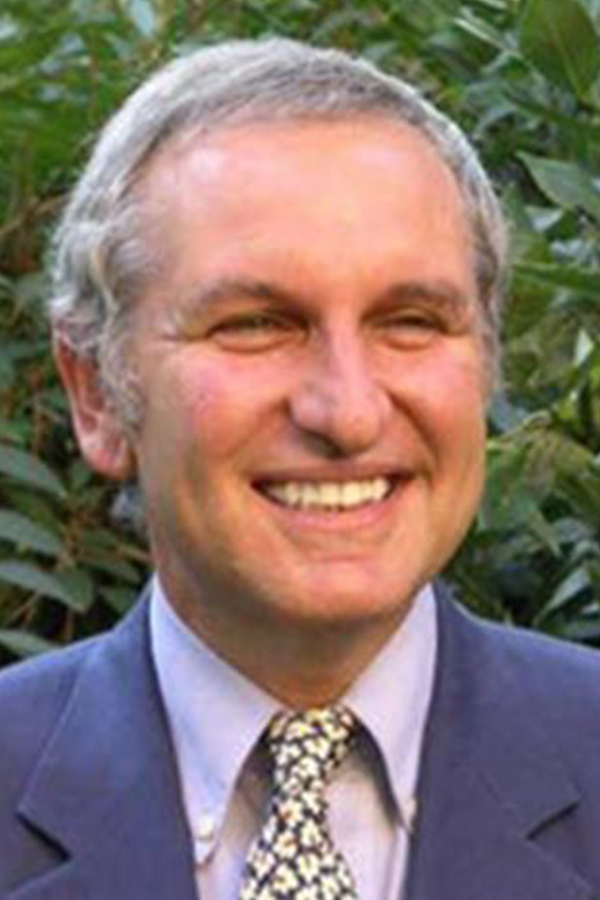
Professor Bruno Marino is Professor of Pediatrics, Chief of Pediatric Cardiology Unit and Director of Department of Pediatrics, Obstetrics and Gynecology at "Sapienza" University of Rome, Italy.
He was trained in Cardiology and Pediatrics and studied anatomy, embryology and clinics of congenital heart disease in Naples, Padua, Madrid and Boston. He worked in Pediatric Cardiology Units at Catholic University of Rome and at Bambino Gesù Hospital of Rome.
His research activity is mainly focused on anatomy, echocardiography surgical treatment and medical genetics of cardiac defect with particular interest in congenital heart disease associated with genetic syndromes. Prof Marino is the author of more than 300 peer-reviewed articles, papers and book chapters on pediatric cardiology and editor of 6 books on diagnosis and treatment of cardiac defects.
Editor's note: Prof. Marino received the Angelo DiGeorge Medal in 2020.
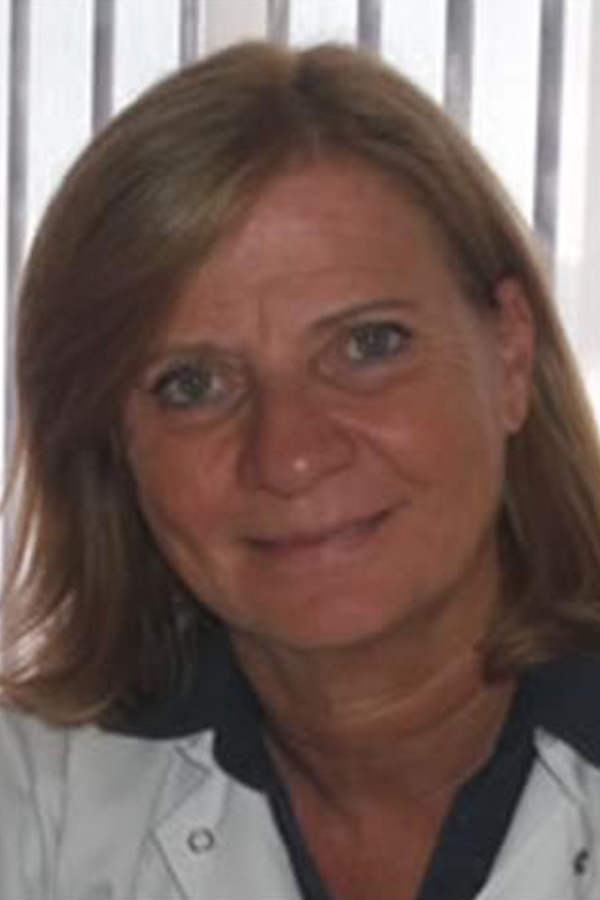
Nicole Sarles-Philip is a professor of medical genetics in Marseilles, France. She was trained as a pediatrician. At the end of her internship, she chose to specialize in medical genetics. She is in charge of the clinical unit of the Department of Medical Genetics of Marseilles and coordinates the Centre of Expertise for Developmental Anomalies of South France. The centre is affiliated with the national and European networks for rare developmental disorders, Anddi Rares and ITHACA, and hosts a clinic for 22q11.2 patients. The centre works closely with the French patient support group, Generation 22. Since 2004, Prof Philip has been responsible for the French training program for genetic counselors.
Nicole's research activity is mainly clinical. She has a particular interest in prenatal aspects of rare developmental disorders and has participated in many national and international collaborative projects. She has been involved in 22q11.2DS research since 1993, when Peter Scambler coordinated the first European project on DiGeorge syndrome, and continues to be heavily involved in the International Consortium on Brain and Behavior in 22q11.2DS. She organized the 5th Biennial International 22q11.2DS Meeting in Marseille in 2006.
Prof Philip is the author of more than 200 international publications and the editor of a French book on dysmorphology.
Editor's note: Prof. Philip-Sarles received the Angelo DiGeorge Medal in 2020.